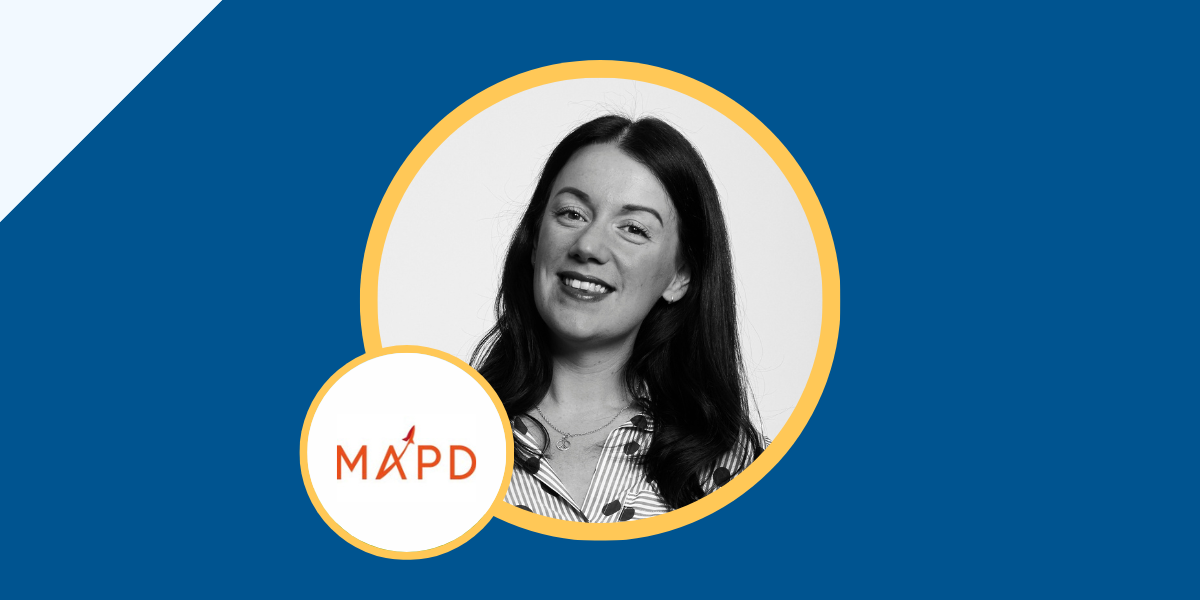Featuring an interview with Dottie Lee, Associate Director and Head of Recruitment, Inclusion and Wellbeing at The MAPD Group.
It’s becoming increasingly recognized in various fields, including the legal profession, that neurodiversity is a natural variation of the human brain and not a disorder to be cured. Common neurological differences range from autism, ADHD, and dyslexia to dyscalculia and sensory processing disorders.
The MAPD Group, a forward-thinking network of several regional law firms including Jackson Lees, Bermans Solicitors and the recently acquired Bromleys Solicitors, is committed to offering an inclusive workplace for all legal professionals, but in particular, is aiming to become the Employer of Choice for Neurodiverse Lawyers.
We recently spoke with Dottie Lee, Associate Director and Head of Equality, Diversity and Inclusion at The MAPD Group to find out more about why it is so important for the group to take this stance.
Why is it so important for the MAPD group to provide a supportive working environment for neurodivergent employees?
At MAPD, we strongly believe in creating a supportive working environment that caters to the needs of every employee, and that includes those who are neurodiverse or those with disabilities. Although physical disabilities are more visible and apparent, it’s equally important to consider hidden disabilities like neurodiversity. We have to shout louder about that because people who are neurodivergent have had to face their own unique challenges and obstacles, just like people with physical disabilities. At MAPD, we are committed to promoting equality and providing a safe and open space for our employees to communicate and grow. We lead with kindness and fairness and want to ensure that every employee, regardless of their background or disability, receives the same level of respect, opportunities to excel and ultimately, the same experience with us.
It’s important to shine a light on neurodiversity and it’s something that should have been happening a long time ago. It’s only now we’ve got more people in the legal industry and more people in the public spotlight who are openly speaking about their ADHD or their dyslexia and the struggles that they’ve had, that makes it more of a safe space to have this conversation.
It’s sort of like where we were ten years ago with mental health. Now we all speak openly about mental health and it’s also OK to speak about neurodiversity. It’s how it should be; neurodiversity is not a boundary for us at MAPD. When it comes to our employees, we actively listen to them to learn what their requirements are and what they need to be able to do their job and then we take steps to move forward and level them up. Our priority is to treat everyone fairly, not just those who are considered disabled or have a condition, but everyone, across the board.
It’s one in five people who are neurodiverse, or who are not “neurotypical”, so it’s a massive proportion of people, isn’t it?
Absolutely. I think across the UK now, it’s one in five. In the legal industry certainly, it’s one in five. It’s so, so common and we need to be making it easier for people to talk about neurodiversity. We want MAPD to “Make a Positive Difference” and hope by flying the flag for neurodiverse lawyers, we can change people’s perspectives.
As an employer, when we take someone on who has, dyspraxia or ADHD for example, it shouldn’t be a square-peg-in-a-round-hole situation; if you’ve got a hidden disability, you should fit into our business and you should be comfortable and welcomed into the team.
How do you support those who are neurodivergent at MAPD?
Each employee is completely different and their own individual person. We’re really interested in our people from the get-go. During the recruitment process, we ask our potential employees open-ended questions to understand them better, right from the moment we see their CV. Before we conduct a technical interview, we have a MAPD chat with them, which is like a personality interview. This allows us to get to know them on a personal level and see if they share our values and are “MAPD”. We are interested in their life outside work, how they make a positive impact, how they manage their mental health, and what they enjoy doing. All these factors are essential to us, and they cannot be revealed through a CV alone.
When we’re arranging those conversations, we always ask if there’s anything at all that we can do to make the individual feel more comfortable with the process. We ask leading questions in hopes of making people comfortable enough to share any adjustments they need. For instance, if someone has ADHD and is inattentive, they may prefer a larger room where they can stand up and move around during an interview. If they’re in a space for more than an hour, that will make them feel comfortable.
Similarly, if someone has a physical disability and requires adjustments, we’ll ask about the accommodations they need. For example, if they have a wheelchair, we’ll ensure that our office is accessible. If someone tells us they’re dyslexic and asks if we have any software for dyslexic people, we absolutely have, and we can get that installed for them before they join us. So, they know that from their very first day, they’ll have everything they need to do their job properly.
Once someone starts with us, no matter if they are neurodiverse or not, if they need adjustments made we will send them through Access to Work, the government-funded process. In the case of those who are neurodiverse, they might have a telephone appointment with a clinician, usually a neurodiverse specialist in occupational health to speak about their condition. The specialist will then advise us on what adjustments need to be made for the individual to level them up. They might recommend certain software, working hours (for example, regular breaks in the day) or the ideal working location (such as a quieter room or not in the middle of an open-plan office). They can also give co-coaching to their line manager to educate them on how to spot traits of their condition and how to manage them in the right way.
There’s also training for individual employees to help them manage their condition in the workplace. We have a couple of people going to ADHD coaching at the moment. This has helped them understand what changes to help them focus can be made if they’re struggling with inattentiveness. At the other end of the spectrum, some people with ADHD experience what’s called hyperfocus. They might be working on a legal document and before they know it, six hours have gone when they should have only spent half an hour on it. The coaching helps them understand what measures we as an employer can implement to help get them out of that trance-like state.
We can provide tools and visual aids such as stop clocks to help with this, or fidget spinners to help someone keep focus. Having the right lighting is also really important for people with neurodiverse conditions and natural light can help the brain work better. Some employees use daylight lamps to create a lighter working environment and provide the illusion of natural light throughout the day, which is particularly useful during autumn and winter.
But above all, it’s about having conversations with people and actively listening to them. If you’re one of our employees, we want to know how we can support you because everyone who is neurodiverse is completely different and has their own ways of working.
Is there anything else you do at MAPD?
All employees who are neurodivergent or have a physical or hidden disability also have what we call an Umbrella Passport. This is a document that explains what impairment or condition they have, how they like to work, how their condition can affect their day-to-day work and what adjustments have been made to level them up. The Umbrella Passport also states what colour energy you are, which gives an insight into your personality, how you work and your approach to collaboration. Colour energies are something we use across the business to help us all understand each other better (I’m a green which means I care and worry about absolutely everybody!) This is signed off by the individual and their Passport is given to their team leader.
If someone changes departments, it goes with the employee and is shared with their new manager, so they don’t need to have the same conversation about their requirements again. Their line manager will know exactly what they need and will be prepared for their joining the team.
That sounds great. It must make things so much easier and more efficient from a commercial side as well. Because everyone can just work better, faster.
Exactly. And as a law firm, it’s particularly useful with trainee solicitors. We currently have ten trainees in rotation at the moment and three of them are neurodiverse. As they move seats every six months and join a new team, they should not have to go through the process of explaining their needs and work preferences. All of this information is already in their Umbrella Passport.
In our view, it is essential that team leaders are flexible to the requirements of those in their team. Every individual’s way of working is unique, and it’s not fair for a team leader to expect everyone to follow their way of working. Instead, team leaders should support and accept everyone as individuals and help them in their own ways of working.
From my perspective, the Passport is helpful because it allows me to brief new team leaders on their team members before they meet them. I can inform them about any specific needs or work preferences that they should be aware of, making the transition smoother for everyone involved.
What are the benefits of having a neurodiverse team?
The benefits can’t be capped. There are so many different ways of thinking; a neurodiverse team brings so many new ideas and different approaches and creates such a brilliant working environment. To see team members, both neurodiverse and neurotypical working alongside, learning from each other and supporting each other is fantastic.
We’re just really lucky to have the workforce we’ve got. Having neurodiverse people in our workforce adds to the diversity of our team. It’s like having unicorns in our business; we can’t quite pinpoint what they bring, but we know it’s amazing.
Seeing the various personalities and work styles, and how everyone is adaptable and flexible, is incredible. Having those little unicorns here, there and everywhere, just brings a completely different level to the business.
Could you give us an example of a neurodiverse lawyer who is thriving at MAPD?
Of course. We recently promoted an employee who started with us as an assistant. During their interview, the employee disclosed that they were autistic and expressed nervousness about joining the team as it was their first legal role after graduating from university. As we were aware of their autism, we made sure to be more understanding and accommodating during the interview. We arranged for a larger room so that they could feel more comfortable. We agreed that there would be no handshake or eye contact to respect his personal space. Because they were comfortable in the meeting, they completely smashed the interview.
When a progression opportunity opened up, they decided to apply. Once again, the interviewers accommodated his needs by not shaking hands or making eye contact. They performed really well in the interview and secured the promotion and are doing really well in their new role.
That’s so lovely to hear. How do you educate the wider team at MAPD group about neurodiversity and inclusion?
We give loads of hands-on training to our leaders and employees. As well as our training academy, which helps develop soft skills, legal skills and career-based skills, we have informal think tanks about lots of different issues including neurodiversity and inclusion. We encourage our team members to get involved and speak about issues that affect them to raise awareness. Attendees sit and ask questions. As a business, we learn a lot from these think tanks and get a greater understanding of what would help people. We always take away what we’ve learned and make further improvements. We keep our promises; we like to champion change.
We also have external speakers come into the business. This month, we have someone coming in to raise awareness about dyslexia. A number of people have recently joined us who have told us they’ve got dyslexia, so this is a really important topic for us at the moment. As part of ADHD month, The ADHD Foundation came to discuss neurodiversity as a whole and what that means in the workplace.
The MAPD Group’s CEO Brian Cullen and COO Joanna Kingston-Davies are also unbelievable. They come into the office and openly speak about their own experiences (both have children who are neurodiverse). We’ve got an open panel discussion coming up where a couple of neurodiverse employees will have a conversation with Brian and Joanna about how their neurodiversity has impacted them at work and how they manage it.
Having that personal touch, and hearing from the people who we work with us all the time, usually resonates more than it does with an external speaker. So, we have a good mix of people speaking openly about it and neurodiversity is championed throughout the business.
When a new law firm joins the business, how do you bring their team up to speed with everything you’ve told us about so far?
In my role, this is something I am very passionate about. Whenever we acquire a new law firm, like Bromleys, for instance, I, along with a few others from MAPD, visit the firm to provide training. Our training covers people skills, people management, and inclusivity, to ensure that the new firm becomes a “MAPD” business.
As I mentioned earlier, we aim to be the Neurodiversity Employer of Choice, which makes it crucial for leaders in newly acquired firms to receive training in this area. Some managers may not have had experience leading teams that include individuals with autism or attention deficit disorder (ADD), so we equip them with the necessary tools. Our training teaches them which questions to ask, what to look for, and how to handle certain situations. We also direct them to useful resources and the team at MAPD, so they know we are here to support them. If they face a situation they are unsure about, they can always reach out to us, and we’ll guide them through it in the most empathetic and kindest way possible so that the employee at hand is treated with kindness and respect.
What advice would you give to other hiring managers or law firm owners who would like to better support neurodiverse lawyers?
Give people time, be kind and really listen. Give people the space to grow and develop and let them show you what they can do.
I’ve worked in other businesses where autism or neurodiversity is seen as a problem, it shouldn’t be seen as a problem, it should be seen as a benefit for you and your business. These individuals are fantastic – if they can pass an interview and they have the qualifications you need for a certain role, let them do the role.
We need to do better, and we need to take action. Give them an opportunity and watch them flourish. Let them prove you wrong.
Embrace difference for a more inclusive future
Appreciating and acknowledging the unique strengths and viewpoints of neurodiverse individuals can help the legal profession become more innovative and creative, creating a better work environment for everyone.
Employers who prioritize creating an inclusive workplace that caters to the needs of neurodivergent professionals, such as The MAPD Group, can tap into a larger legal talent pool and attract lawyers who may face challenges in a traditional law firm, but who can play a crucial role in their firm’s success.




